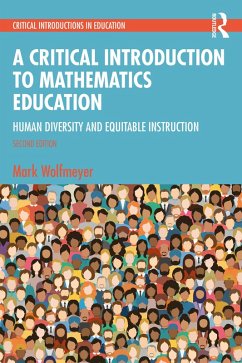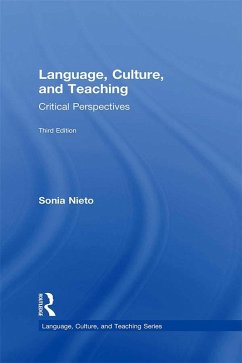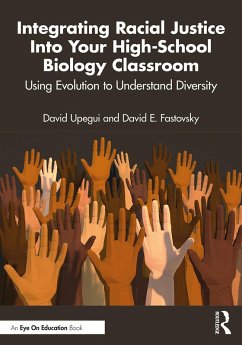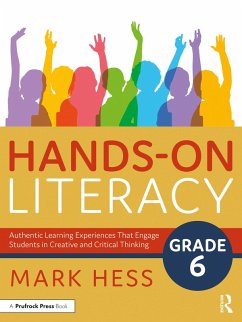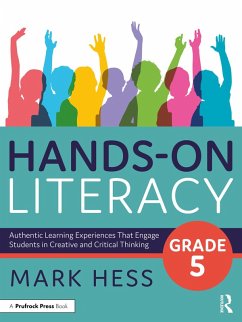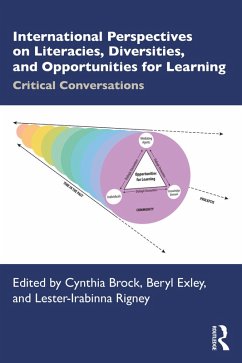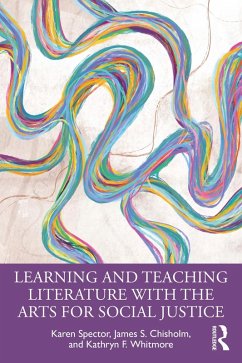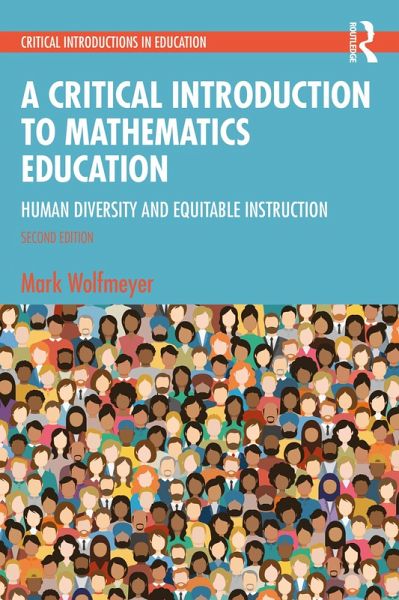
A Critical Introduction to Mathematics Education (eBook, PDF)
Human Diversity and Equitable Instruction
Versandkostenfrei!
Sofort per Download lieferbar
37,95 €
inkl. MwSt.
Weitere Ausgaben:

PAYBACK Punkte
19 °P sammeln!
The second edition of Mark Wolfmeyer's award-winning primer offers future and current math teachers an introduction to the connections that exist between mathematics and a critical orientation to education, one that accounts for race, social class, gender, sexuality, language diversity, and ability.Expanded and updated from the first edition, this book demonstrates how elements of human diversity and intersectionality have real effects in the mathematics classroom, and prepares teachers with a more critical math education that increases accessibility and equity for all students. By refocusing ...
The second edition of Mark Wolfmeyer's award-winning primer offers future and current math teachers an introduction to the connections that exist between mathematics and a critical orientation to education, one that accounts for race, social class, gender, sexuality, language diversity, and ability.
Expanded and updated from the first edition, this book demonstrates how elements of human diversity and intersectionality have real effects in the mathematics classroom, and prepares teachers with a more critical math education that increases accessibility and equity for all students. By refocusing math learning toward the goals of democracy and social and environmental crises, the book also introduces readers to broader contemporary school policy and reform debates and struggles, especially in light of Covid-19 and the ongoing struggle for racial equity.
Featuring concrete strategies and examples in both formal and informal educational settings, as well as discussion questions for teachers and students, text boxes with examples of critical education in practice, a glossary, and suggestions for further reading, Mark Wolfmeyer shows how critical mathematics education can be put into practice, relevant for undergraduate and graduate students in education, current teachers, and teacher educators.
Expanded and updated from the first edition, this book demonstrates how elements of human diversity and intersectionality have real effects in the mathematics classroom, and prepares teachers with a more critical math education that increases accessibility and equity for all students. By refocusing math learning toward the goals of democracy and social and environmental crises, the book also introduces readers to broader contemporary school policy and reform debates and struggles, especially in light of Covid-19 and the ongoing struggle for racial equity.
Featuring concrete strategies and examples in both formal and informal educational settings, as well as discussion questions for teachers and students, text boxes with examples of critical education in practice, a glossary, and suggestions for further reading, Mark Wolfmeyer shows how critical mathematics education can be put into practice, relevant for undergraduate and graduate students in education, current teachers, and teacher educators.
Dieser Download kann aus rechtlichen Gründen nur mit Rechnungsadresse in A, B, BG, CY, CZ, D, DK, EW, E, FIN, F, GR, HR, H, IRL, I, LT, L, LR, M, NL, PL, P, R, S, SLO, SK ausgeliefert werden.




